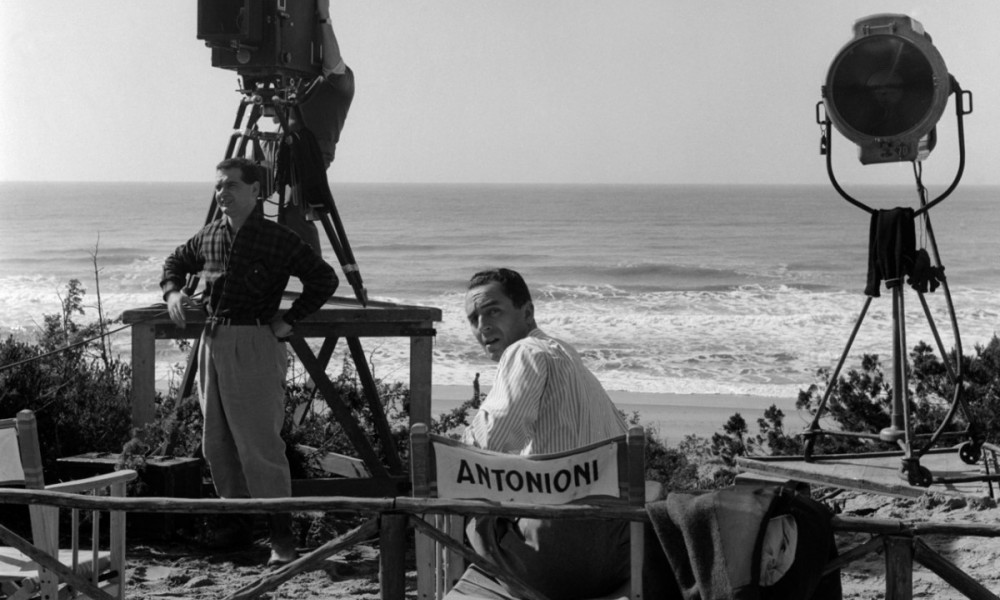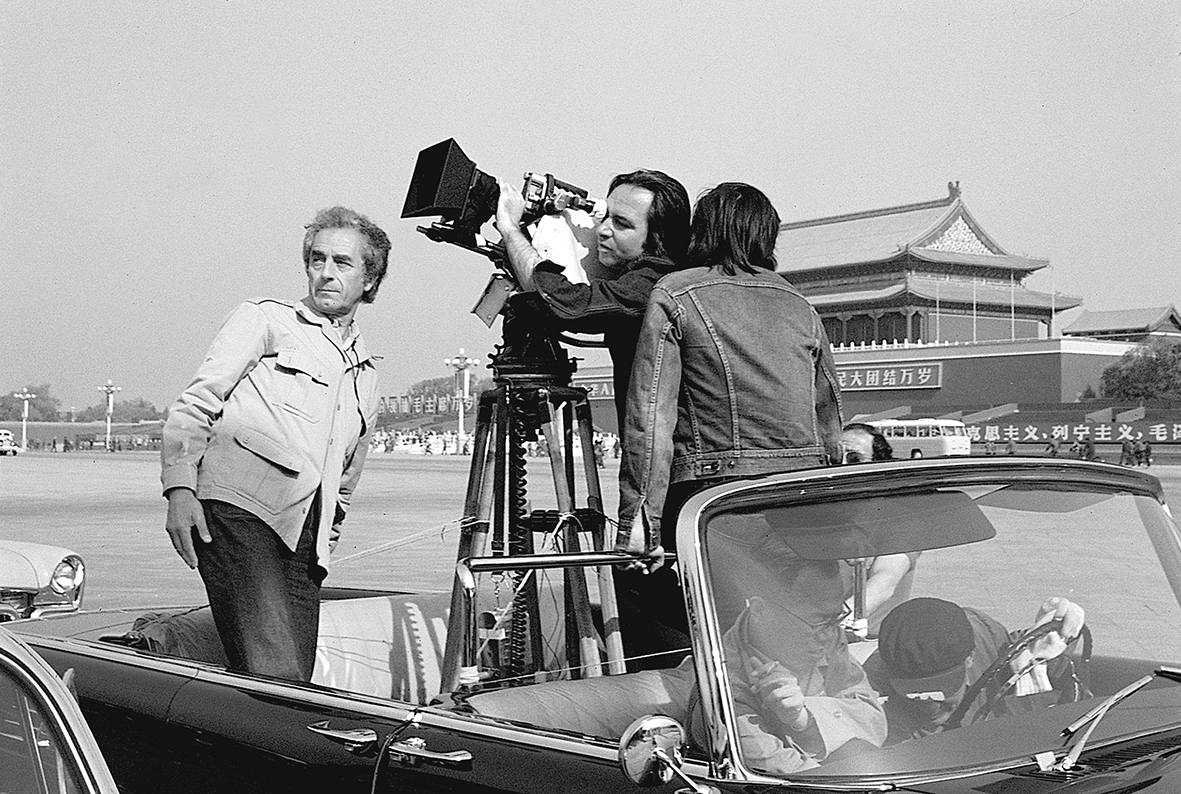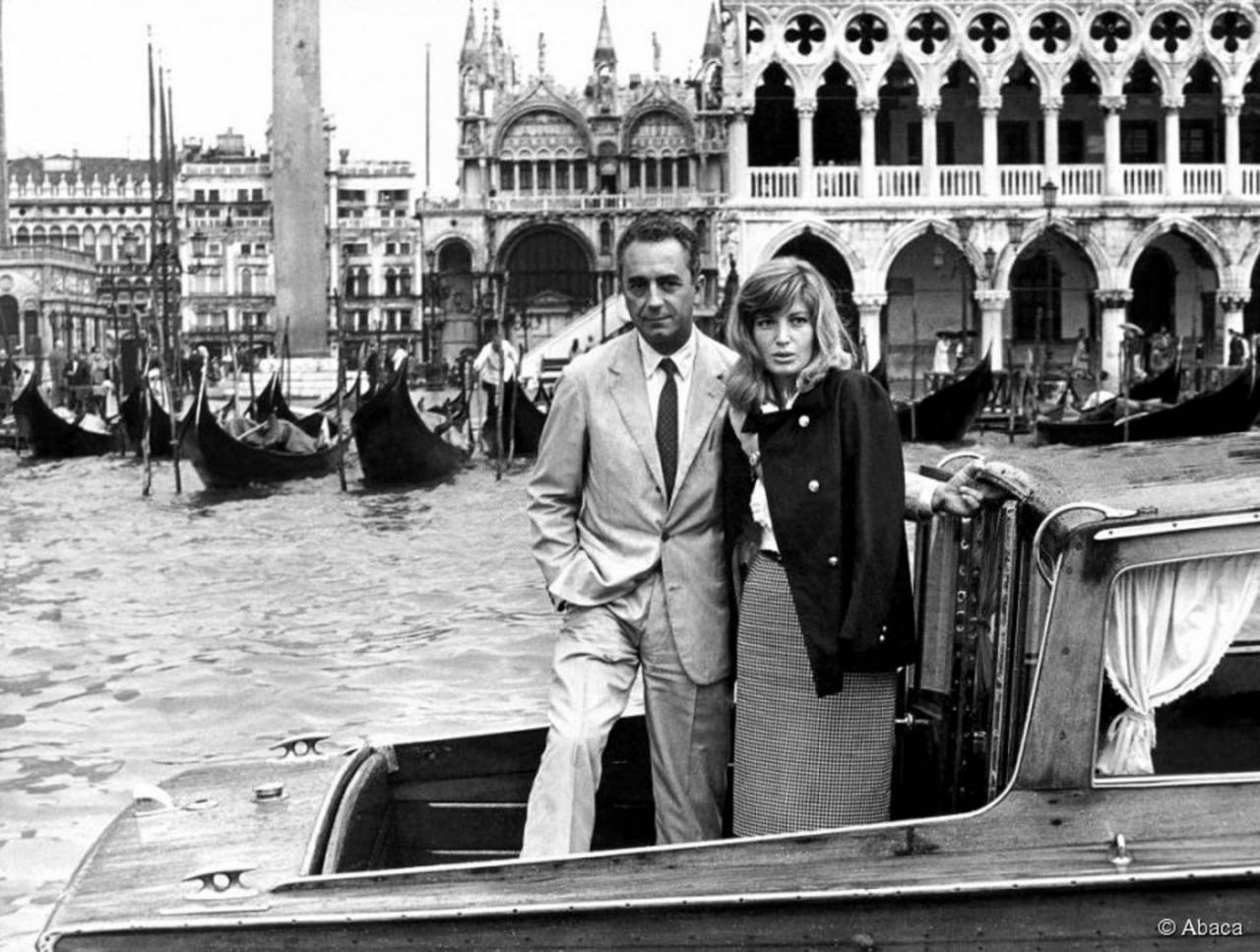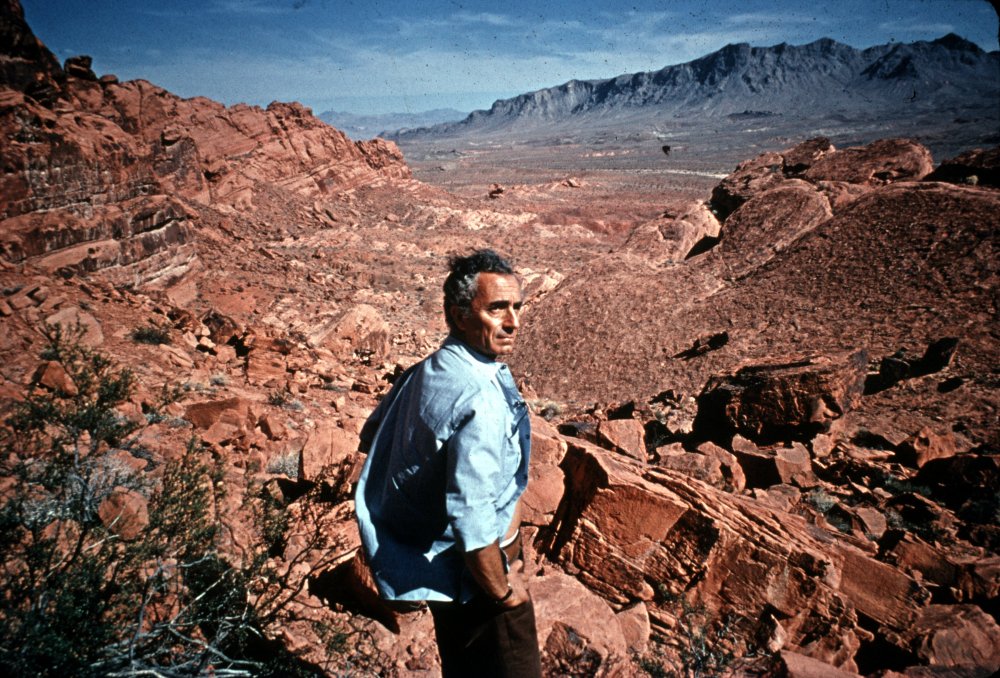Michelangelo Antonioni: a Poet of the Desert of Human Soul

"What bothers a modern person? What response the events that occur in the world get in his or her soul? These are the questions that we should pose to ourselves in our art", he explained.
So Antonioni depicts spiritual state of a person under conditions of the decay of family relations (The Night), reign of money (Eclipse), pressure of the state system (Zabriskie Point), and progress (Red Desert). All in all, given individualism thatthe western culture proclaims, a sensation of helplessness of every given person and its nedlessness is distinctive there. A person can simply disappear like Anna in The Adventure, or commit suicide like Aldo in The Cry but more often is suppressed bythe routine (even if such emphatically bohemian as in Blowup). No wonder that a feeling of fallacy and elusiveness of life emerges along with the desire to change it, get a fresh start the way the character of the film The Passanger did, though he failed. Photo fondazioneprada.org
Photo fondazioneprada.org
The director personally partly explained the problem of his characters by the inconsistency of the contemporaries and the technological progress: not only material world changes, so does a human, alteration of moral and spiritual values however comes way too slow. The gap emerges along with the problem of adaptation to the changing world. And that is the problem forGiuliana from the Red Desert, justas for many of our contemporaries (there is a good reason why we hear people complain more and more often about crazy pace of life that enslaves and eats away at a person).
One way or another, Antonioni's characters feel uncomfortable in their worlds and quite often try to escape. Escape anywhere: to some sort of anti-civilizational dserted heaven (Zabriskie Point), personal relations (Eclipse) or even death (The Cry). But such escape is hopeless. Photo flashbak.com
Photo flashbak.com
This is how the director explained the hero (or is it the anti-hero?) of his Red Desert: "He (Corrado) runs, trying to solve the main problem of his life in such manner. But the problem is not on the outside, it is inside him." This way, according to the character himself"Each of us twist and spin to later turn up just as we had been before." An ordinary worker in the movie, for one, hasno desire to go anywhere: he feels cozy just where he is - something Corrado simplydoes not have. Something Giuliana has lost."In the soul every Italian longs not so much for an escape as for an adventure. We have no clue about how to manage our leisure and release the energy that finally gets a discharge either in sex or in crime", the master wrote. In the case of the Red Desert one can see something else as well. The problem for the characters is that the world hasn't just caught them, it outperformed them to leave in some sort of a vacuum. They look for the way out differently: Corrado sees it in moving away, Giuliana- in suicidal tendencies, thatare also an escape of a kind. A ship is a cut-through image of the film for a reason. In the movie's finale the heroine hasn't brought herself to boarding it. Maybe,that was for the better. An escape, a drastic change in the destiny would hardly have brought happiness the character altogether detached from the reality... Photo bfi.org.uk
Photo bfi.org.uk
Now, what happens to attempts to change this world? In the world of Antonioni they are seemingly doomed, too. The image of the 'left' students in Zabriskie Point is crucial here. Social system in this movie resembles a press that rebels powerlessly welter under (maybe, this is why the main character hijacks a plane trying to fly up?) Scenes involving them basically depict an image of a police state. "When they smash your face, beak your head, prevent you from living, going to school, from getting a job, then you must become revolutionary", a dark-skinned student says. "This country is falling into Fascism, can't you see? I mean, now we have police at university, and then? Where next? Sitting with us in class? Inside our homes? And then? On the street when you go out?"the activists outrage. No wonder that the youth strain after the battle: they merely enter the big life and are not accustomed to its atmosphere, they feel the sultriness of the social system. That said, it is hard to specify a particular program of these pretty controversial (with all the affection of the director) characters. What if they rebel for the sake of the rebellion? They, however, have what many of the other Antonioni's characters(and, ultimately, not just them) lack: a common goal, "ideological kinship" that, according to the author, "becomes a means of social communication and reaching understanding". Was that a way out of a social crisis in the eyes of the director? Doesn'tseem so. Antonioni didn't see himself as a prophet. He merely researched, tried to display and where possible explain the problems of the people of the 20th century. Unfortunately,they still remain relevant, so Antonioni will not lose his audience for a long time.
Cover photo rivegauche-filmecritica.com





















